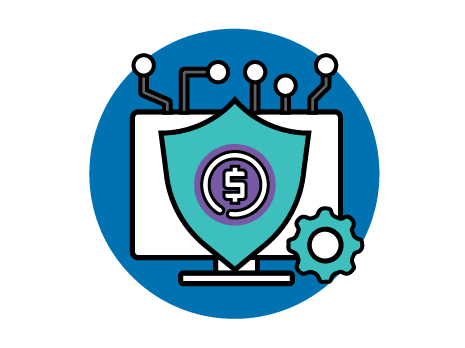To say that the Fintech industry is booming would be an understatement. The adoption of digital solutions across the financial sector has been growing steadily for the past five years – and it feels that nothing will stop it. As a simple proof of that, it’s enough to say that there are approximately 3,471 million users of digital payment solutions today, a number that’s expected to amount to 4,636 million by 2024.
It’s hardly a surprise. There’s a high penetration of digital solutions in our everyday lives, and the convenience brought by fintech applications is simply too much to ignore. In fact, anyone who has to deal with financial companies of any sort can realize how efficient and effective these solutions can be. However, that doesn’t mean that the Fintech industry already has a highly polished experience without room for improvement – quite the opposite.

The Challenges in Fintech
There are a lot of expectations surrounding Fintech software. From providing the seamless experience mentioned above to offering quick and efficient solutions to countless requirements, these applications are under heavy scrutiny and have almost no room for errors. You can blame the sensitive nature of the information with which it works – mainly money and financial assets.
That’s not all. There’s also the wide range of services that fintech is tasked with, including banking-related operations, payment processing, investments of all kinds, equity funding, insurance activities, and many more. Each of those sectors has its own specific set of requirements and challenges that fintech needs to address appropriately and watch for essential pillars, including:
- Safety
- Security
- Reliability
- Accessibility
- Privacy
- Performance
As if all those aspects didn’t add enough complexity to the fintech landscape, countless operations also present distinct challenges that need to be addressed separately and with surgical precision to ensure that all those pillars are safeguarded. Those operations are way too many to mention, but some of the most important include:
- Data confidentiality
- Cybersecurity features
- Large-scale systems and integration
- High data volumes processing in real-time
- Concurring transactions
- Record keeping and tracking
- Risk management
All of these and many more are the backbone of fintech software and need to perform at the highest levels to meet user expectations. Thus, the role of QA services becomes a must.
What is the role of quality assurance?
Quality assurance (QA) is a practice that focuses on preventing mistakes and defects in software. The goal is to achieve the best possible product during development by using improved processes to boost the quality of the outcome. QA testing companies look into development processes to check how efficient and effective they are and see if they are up to the quality standards defined for the final product.
In Fintech, those quality standards are very high because (as we’ve said earlier), the assets and the data used by Fintech software is highly sensitive. Thus, the role of QA testing services when dealing with Fintech products is fundamental. It needs to ensure that the processes used to develop those products can put out functional, secure, usable, and reliable applications.
Aspects Covered By QA Services
As if that technical challenge wasn’t enough, there also are the challenges we’ve discussed earlier that make the Fintech sector such a thorny field. So, QA services need to go beyond the mere look into the processes to ensure a great performance: they need to understand the potential vulnerabilities that may result and reconfigure the processes to make sure they won’t make it to the software in the first place.
In that way, QA testing isn’t just about discovering bugs that may be already present in the Fintech software but rather about finding the underlying software development mechanisms that make them appear. What’s more, QA engineers also have to pay attention to regulation compliance, since numerous legal frameworks heavily regulate the Fintech industry.
With that being said, let’s review the different aspects a software QA team should be looking into:
1 Security.
QA testers need to rigorously analyze fintech software in search of vulnerabilities and inherent risks.
2 Data Protection.
QA services need to assess how the software stores, handles and transfers critical information.
3 Compliance.
QA engineers need to see that the software adheres to each of the countries’ regulations in which the product will be available.
4 Usability And Functionality.
Ensuring that the software works as intended and that it’s up to par with the users’ expectations is key to any QA assessment.
5 Accessibility.
QA also has to consider the different needs from a diverse user base, paying attention to potential visual, cognitive, auditory, or physical disabilities.
QA For Fintech – A Must Have
No one could argue that the Fintech industry is opening a world of opportunities for the financial world. It brings stylized solutions that can provide a superior experience to all kinds of users across multiple platforms. Fintech software’s power is so great that it’s just a matter of time before it completely redefines all the financial services we know today.
But, to get there, fintech development companies need to tackle the inherent challenges that come with the field. Since they aren’t static issues that can be dealt with and forgotten, the Fintech industry needs the most efficient processes it can get to ensure that the products it uses are as robust as possible. That’s when QA enters the scene.
The practice is a staple of software development, yet some companies still see it as expendable. Under no circumstances can this be the case for Fintech companies. In this sector, QA services are a must, something that has to be present in the development process to ensure the pillars that make great applications: safety, security, reliability, and performance.
That’s why any Fintech company looking to create new software or trying to revamp its existing applications needs to work with a QA company as experienced as BairesDev. Thanks to the most rigorous development methodologies and the inclusion of QA engineers throughout the process, we have the QA expertise to create the most robust software.







